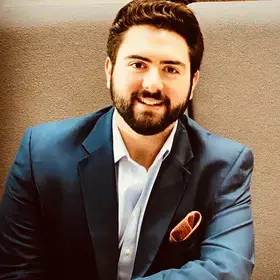A clinical instructor at the American University of Beirut in the Family Medicine Department, Dr. Beatrice Khater began her medical journey in the late ’90s and worked in countries across the globe, including Canada, the UK, Switzerland, Spain, France, and Italy—finally settling in her homeland of Lebanon. Dr. Khater signed up for Columbia University’s online Narrative Medicine Certificate of Achievement program, a way to marry her love of medicine with a practice that brought her closer to the art of storytelling.
How did you learn about the Columbia Certification of Professional Achievement in Narrative Medicine program?
In September 2018, the American University of Beirut held a conference under the title, “Transformation of Medical Education on the New Era,” and Dr. Rita Charon was one of the speakers. The title of her plenary session was “Medicine Is a Narrative Act.” It was my first contact with Narrative Medicine. I immediately searched for something related to Narrative Medicine that I could learn online.
What were you doing in your career when you started your C.P.A.?
I was, and I still am, combining my clinical activities as Family Physician and my teaching activities at different levels (medical students and residents).
What attracted you to the Narrative Medicine program in particular?
Combining my two interests, medicine and art, was for me a discovery. When I first heard about narrative medicine, it was a revelation in that sense, because I did not imagine mixing the two worlds.
What role does Narrative Medicine play in your work?
I think that without labeling it, I was practicing some sort of narrative medicine in my clinical work. Now that I am more aware of it, I feel I have added an extra layer.
Who was your favorite professor, and why?
I would say that I have learned the most with Derek McCracken and Deepa Gowda, lecturers in the Narrative Medicine program. They both illustrated their ideas with practical and very useful tips to help students acquire the skills for leading narrative medicine workshops. Derek worked closely with students, providing detailed and specific comments on our work, acknowledging our efforts and how this could stress us. I truly felt he was there for us. He shared some of what he wrote as well, so this type of involvement was amazing for me.
How did your degree inform your career? How are the Columbia Narrative Medicine program and the Columbia network helping you to stand out among your peers?
I have to show my appreciation to Cindy Smalletz, our Narrative Medicine CPA Program Director, who made this experience flow smoothly. With her help and her advice, I am introducing narrative medicine to the curriculum of the medical school at the American University of Beirut in a new format.
Through Columbia, I have joined a group of narrative medicine educators, so I don’t feel so lonely on the planet. I can continue learning from the experience of others, discovering new ideas on how to implement this vital practice.
What are some of the challenges that you encounter in your work? Describe the value you are able to bring as a result of the knowledge you’ve gained at Columbia.
I have always felt that a medical career was about science, facts, evidence-based conclusions, and less about the person in front of you. However, my residents called me “the doctor who cries” because I would allow myself to shed some tears with the patients, especially when their story moved me. So when I learned about narrative medicine, I felt less awkward. And I feel that now when I share my knowledge with students in medical school, I will allow for their humane side to be present and to be expressed.
Is there an anecdote or story about the value you’ve gained and how your experience at Columbia will inform your future?
The connections I have made, although virtual, felt very real. I still have contact through mail with some of the students. We share personal things and I consider them friends.
I am so thankful for my Columbia Certificate in Narrative Medicine. I earned it during the worst period Lebanon has been through, starting with the October 2019 revolution, and the not-so-peaceful demonstrations, a terrible economic crisis, then the COVID pandemic, culminating with the Beirut blast of August 2020. I believe that concentrating on my program requirements allowed me to escape, at least momentarily, and gain powerful insights that I am now using in my career.
Learn more about Columbia University’s Certificate of Personal Achievement in Narrative Medicine.


